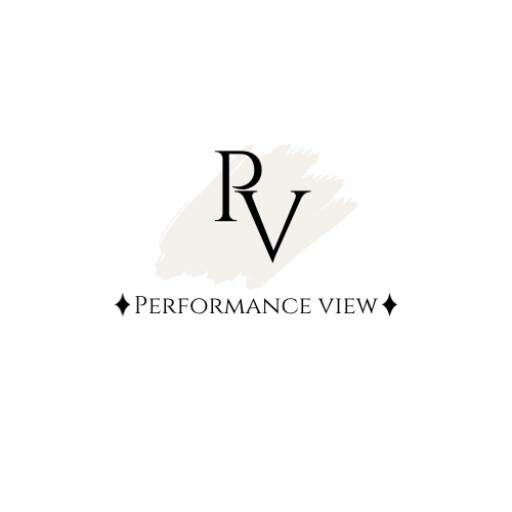
Introduction
Social media has become an integral part of modern life, transforming the way we communicate and connect with others. Among the various elements that have shaped social media marketing, hashtags stand out as a powerful tool for boosting visibility and engagement. In this article, we will explore the roles of hashtags in social media marketing and how they can significantly impact a brand’s online presence.
Understanding Hashtags and Their Purpose
Definition of Hashtags
Hashtags are a combination of letters, numbers, or phrases preceded by the “#” symbol. They act as a metadata tag, categorizing content on social media platforms and making it easily discoverable by users with similar interests.
How Hashtags Work
When users include hashtags in their posts, social media platforms index and organize the content accordingly. This categorization enables users to find relevant posts by simply clicking on or searching for a particular hashtag.
Purpose of Hashtags in Social Media
The primary purpose of hashtags in social media is to facilitate content discovery and conversation. They provide a means for users to participate in broader discussions, join communities, and engage with trending topics.
The Role of Hashtags in Social Media Marketing
Increasing Visibility and Reach
One of the essential roles of hashtags in social media marketing is to increase a brand’s visibility and reach. By using popular and relevant hashtags, businesses can extend their content’s reach beyond their existing followers. This exposure to new audiences can lead to increased brand awareness and potential customer acquisition.
Enhancing Content Discoverability
Hashtags make it easier for users to find content that aligns with their interests. Brands can leverage this by using strategic hashtags that are relevant to their target audience. By doing so, they improve the discoverability of their content, making it more likely to be seen and engaged with by users genuinely interested in their offerings.
Building Brand Identity
Hashtags play a vital role in brand building. Brands can create unique and branded hashtags that reflect their identity and values. Through consistent use, these hashtags become associated with the brand, strengthening its identity and making it recognizable to its audience.
Promoting Campaigns and Events
When launching marketing campaigns or hosting events, hashtags can be instrumental in generating buzz and participation. Branded campaign hashtags encourage users to share their experiences, creating user-generated content that further promotes the brand’s message.
Best Practices for Using Hashtags
Researching Relevant Hashtags
Before using hashtags, research is crucial. Businesses should identify popular and relevant hashtags within their industry or niche to ensure they reach the right audience.
Keeping Hashtags Short and Memorable
Concise and memorable hashtags are more likely to be shared and used by others. Avoid overly complicated hashtags that may confuse or discourage users from engaging with the content.
Using Branded and Campaign-specific Hashtags
Branded hashtags provide a unique identity to a brand’s campaigns and initiatives. They help consolidate all related content under one hashtag, making it easy for users to follow and engage with the campaign.
Avoiding Overuse of Hashtags
While hashtags are valuable, overusing them can have the opposite effect and make content appear spammy. Use a moderate number of hashtags per post and ensure they are relevant and purposeful.
Analyzing Hashtag Performance
Understanding how hashtags perform is crucial to refining social media strategies. Various analytics tools are available to measure the reach and engagement of specific hashtags, allowing brands to optimize their hashtag usage.
Hashtag Campaign Success Stories
Case Study 1: Brand X’s Successful Hashtag Campaign
Brand X ran a month-long hashtag campaign encouraging customers to share their experiences using their product. The hashtag #XperienceMatters quickly gained traction, resulting in thousands of user-generated posts and a significant increase in brand mentions.
Case Study 2: Influencer Y’s Hashtag Strategy
Influencer Y collaborated with Brand Z to promote a limited-edition product. By using the hashtag #YxBrandZLimited, they created anticipation and exclusivity, leading to a swift sell-out of the product.
Hashtags and Different Social Media Platforms
Each social media platform has its own approach to hashtags:
Twitter popularized hashtags as a way to organize conversations and trends. It is recommended to use one or two relevant hashtags per tweet.
Instagram allows up to 30 hashtags per post. Using a mix of popular, niche, and branded hashtags can enhance visibility.
While hashtags are used less frequently on Facebook, they can still be beneficial when relevant.
Hashtags on LinkedIn can help content reach a broader professional audience. It’s essential to use hashtags related to the industry or topic.
Hashtag Trends and Challenges
Trending Hashtags
Jumping on trending hashtags can boost visibility, but it’s essential to ensure they align with the brand’s image and message.
Challenges with Hashtag Usage
The competition for popular hashtags can be fierce, making it challenging to stand out. Brands should find a balance between using popular and niche hashtags.
Leveraging User-Generated Content with Hashtags
Encouraging users to create and share content using branded hashtags can strengthen brand loyalty and authenticity.
The Future of Hashtags in Social Media Marketing
As social media evolves, so will the role of hashtags. Brands should stay updated on emerging trends and adapt their strategies accordingly.
Conclusion
In conclusion, hashtags are a powerful tool in social media marketing. They play a crucial role in increasing visibility, building brand identity, and engaging with audiences. By following best practices and analyzing performance, businesses can harness the full potential of hashtags to boost their online presence and achieve marketing success.
FAQs
1. How many hashtags should I use per social media post?
It’s recommended to use one or two hashtags on Twitter and up to 30 on Instagram. For Facebook and LinkedIn, one or two relevant hashtags should suffice.
2. Can I create my own branded hashtag?
Yes, creating a branded hashtag can help




